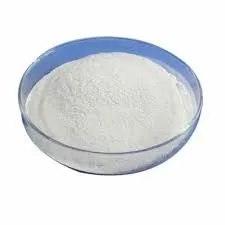
Dec . 09, 2024 18:52 Back to list
Exploring Leading HPMC Manufacturers and Their Innovative Solutions for Various Industries
Understanding HPMC Manufacturers A Comprehensive Overview
Hydroxypropyl Methylcellulose (HPMC) is a versatile cellulose derivative widely used in various industries, including pharmaceuticals, food, construction, and personal care. The importance of selecting a reliable HPMC manufacturer cannot be overstated, as the quality of HPMC directly impacts the performance of the end products. In this article, we will explore the role of HPMC, its applications, factors to consider when choosing a manufacturer, and a glimpse into the current market landscape.
What is HPMC?
HPMC is a non-ionic, hydrophilic polymer derived from natural cellulose. It is produced through a series of chemical processes that modify cellulose to enhance its solubility and reactivity. The unique chemical structure of HPMC imparts several desirable properties, including thickening, binding, spreading, and film-forming abilities. These characteristics make it an essential ingredient in many formulations.
Applications of HPMC
1. Pharmaceuticals HPMC is widely used in drug formulation as an excipient. It serves as a binder in tablets, a film-former for sustained-release formulations, and a stabilizer in suspensions. Its ability to control the release of drugs makes it particularly valuable in developing advanced pharmaceutical products.
2. Food Industry In food applications, HPMC acts as a thickening agent, emulsifier, and stabilizer. It helps maintain texture and viscosity in products such as sauces, dressings, and dairy products. Additionally, HPMC is often used in gluten-free baking as a substitute for gluten, providing structure and moisture retention.
3. Construction In the construction industry, HPMC is used in cement-based products, such as tile adhesives and plaster. It enhances workability, adhesion, and water retention, allowing for better application and durability of building materials.
4. Personal Care HPMC is found in various personal care products, including shampoos, lotions, and creams. It helps improve texture, stability, and spreadability, making formulations more appealing to consumers.
Choosing the Right HPMC Manufacturer
Selecting a reputable HPMC manufacturer is crucial for ensuring the quality and consistency of the product. Here are some key factors to consider when evaluating potential suppliers
hpmc manufacturer

1. Quality Standards Ensure that the manufacturer adheres to international quality standards, such as ISO 9001 and GMP (Good Manufacturing Practices). These certifications indicate a commitment to maintaining high production and quality control standards.
2. Product Range Different applications require different grades of HPMC, so it is essential to choose a manufacturer that offers a wide range of products tailored to specific needs. This flexibility can save time and resources in sourcing materials.
3. Technical Support A good manufacturer should provide comprehensive technical support, including product specifications, safety data sheets, and application guidance. This support can be invaluable in optimizing formulations and ensuring compliance with regulations.
4. Reputation and Experience Look for manufacturers with a proven track record in the industry. Companies that have been in business for several years are more likely to have the experience and expertise needed to produce high-quality HPMC.
5. Sustainability As industries increasingly focus on sustainability, consider manufacturers that prioritize eco-friendly practices in their production processes. This includes sourcing raw materials responsibly and minimizing waste.
The Current Market Landscape
The demand for HPMC is on the rise, driven by its diverse applications across various industries. The pharmaceutical sector, in particular, is expected to witness substantial growth as the development of novel drug delivery systems continues. Additionally, the trend toward gluten-free and clean-label food products is propelling the use of HPMC in the food industry.
The market is characterized by a mix of established players and new entrants, leading to increased competition. Manufacturers are continually innovating to enhance product performance and reduce production costs, ensuring that they meet the evolving needs of their customers.
Conclusion
In conclusion, HPMC is a critical ingredient with widespread applications across multiple industries. When selecting an HPMC manufacturer, it is essential to consider quality, range, support, reputation, and sustainability. By making informed decisions, businesses can ensure that they source high-quality HPMC that meets their needs and contributes to the success of their products. The ongoing growth in the HPMC market presents ample opportunities for businesses willing to embrace this versatile polymer in their formulations.
-
Versatile Hpmc Uses in Different Industries
NewsJun.19,2025
-
Redispersible Powder's Role in Enhancing Durability of Construction Products
NewsJun.19,2025
-
Hydroxyethyl Cellulose Applications Driving Green Industrial Processes
NewsJun.19,2025
-
Exploring Different Redispersible Polymer Powder
NewsJun.19,2025
-
Choosing the Right Mortar Bonding Agent
NewsJun.19,2025
-
Applications and Significance of China Hpmc in Modern Industries
NewsJun.19,2025







